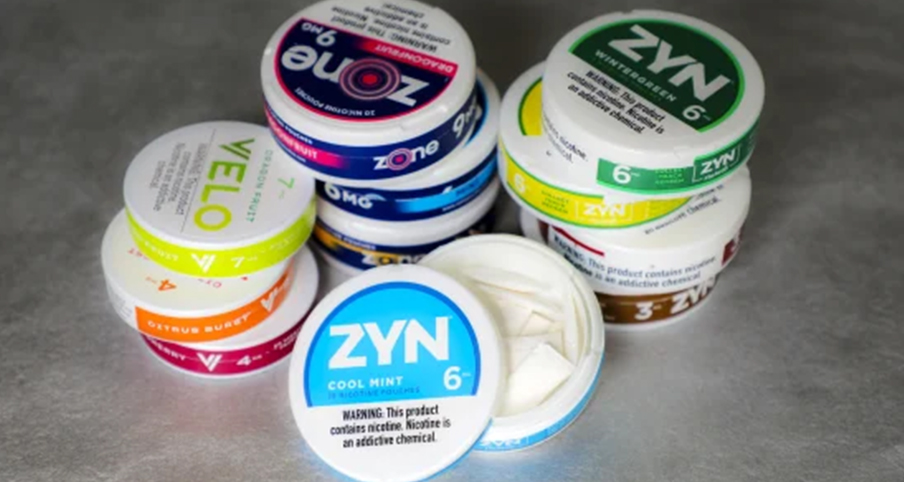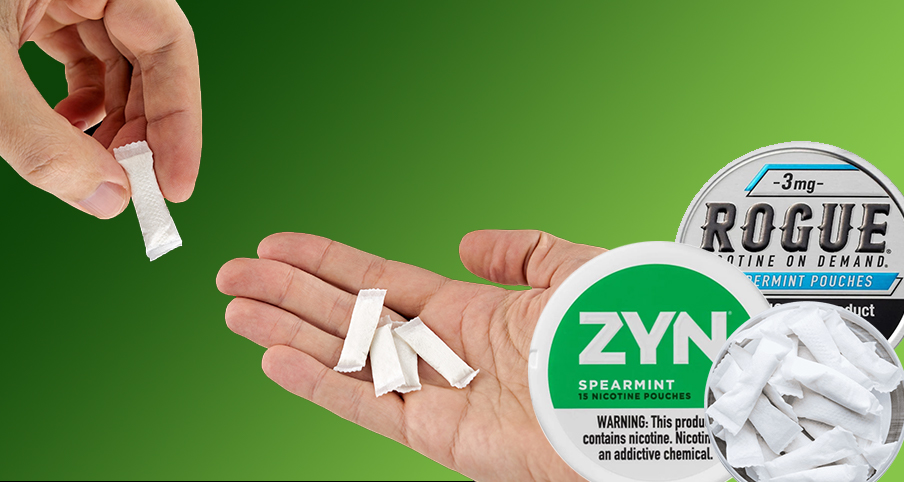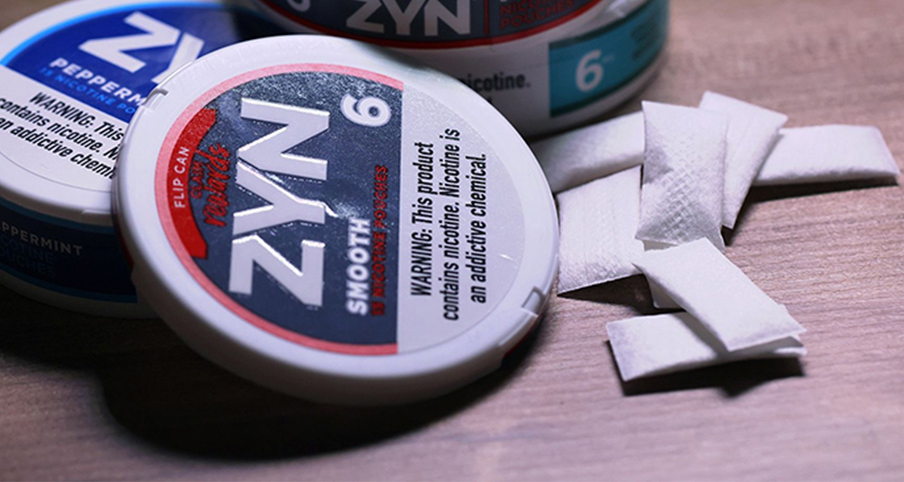The Emergence of Zyn in the Nicotine Product Market
Austin Collins, a resident of Charlotte, transitioned from vaping to using nicotine pouches, nearly tripling his daily nicotine intake. Once consuming about 14 mg of nicotine per day—roughly equivalent to 9-14 cigarettes—Collins now uses nicotine pouches that deliver the nicotine equivalent of two packs of cigarettes daily. Collins, who began using nicotine pouches to quit vaping due to its impact on his breathing, describes the product as a “blessing.”

What Are Nicotine Pouches?
Nicotine pouches like Zyn are tobacco-free and similar in size to a piece of gum, typically placed behind a user’s upper or lower lip. These pouches contain nicotine salts and are available in various flavors, including mint and citrus. Research indicates that these discreet pouches can deliver more nicotine than traditional cigarettes.
Zyn’s Popularity Surge
In recent years, Zyn has gained immense popularity, driven by social media influencers, known as “Zynfluencers.” These influencers have created a subculture around the product, using playful “Zynonyms” like “George WashingZyn” and “Lord forgive me, for I have Zynned,” attracting millions of views.
Despite its growing fame, Zyn has faced regulatory challenges. In June, Philip Morris International, Zyn’s parent company, paused online sales due to a subpoena questioning its compliance with a flavored tobacco ban in the District of Columbia, leading to a supply shortage dubbed the “Great Zynpression.” Nevertheless, the company announced plans to ship at least 560 million tins of Zyn in 2024, a nearly 50% increase from the previous year. A tin of 15 Zyn pouches costs approximately $5.

ZYN Nicotine Pouches
ZYN nicotine pouches come in an assortment of popular flavors and 2 different nicotine strengths for a whole range of options for nicotine pouch users!
Regulatory and Health Concerns
Although nicotine pouch sales surged by 641% between 2019 and 2022, only 2.9% of U.S. adults have used them, according to a recent study of about 39,000 adults. Experts are concerned that teens are driving this spike in sales. Senate Majority Leader Chuck Schumer (D-N.Y.) has called for a regulatory crackdown, labeling Zyn a “pouch packed with problems” and accusing it of targeting young people.
In response, North Carolina’s Republican Sen. Thom Tillis and Rep. Richard Hudson (N.C.-9) defended Zyn on social media, with Tillis challenging Schumer by writing, “Come and take it, Chuck.” Georgia Republican Rep. Marjorie Taylor Greene called for a “Zynsurrection,” highlighting the political divide over the product.
Youth and Nicotine Addiction
Philip Morris International insists that Zyn is marketed exclusively to legal-age adults and does not use online influencers for promotion. However, the 2023 National Youth Tobacco Survey found that 1.5% of U.S. middle and high school students currently use nicotine pouches. Researchers like Bonnie Halpern-Felsher from Stanford University argue that Zyn’s marketing appeals particularly to youth, who may use the product as a social lubricant or stress reliever.
Potential Health Risks
Despite being on the market since 2014, the long-term health impacts of nicotine pouches are still under investigation. Some users have reported gum inflammation and gastric issues. A 2023 study found that while Zyn does not contain cancer-causing nitrosamines, it does have low levels of other potentially harmful chemicals. The FDA has not authorized Zyn products for sale or smoking cessation and has issued warnings to numerous manufacturers and retailers.
For adults seeking to quit smoking or vaping, nicotine pouches might offer a harm reduction alternative. However, experts like Irfan Rahman from the University of Rochester Medical Center caution that while one risk may be mitigated, another could emerge.
Conclusion
As Zyn continues to grow in popularity, the need for increased education and regulation becomes more pressing, particularly to protect youth from potential nicotine addiction and health risks. Parents and guardians are encouraged to stay informed about these products and their potential impacts.
Information from northcarolinahealthnews.org.


